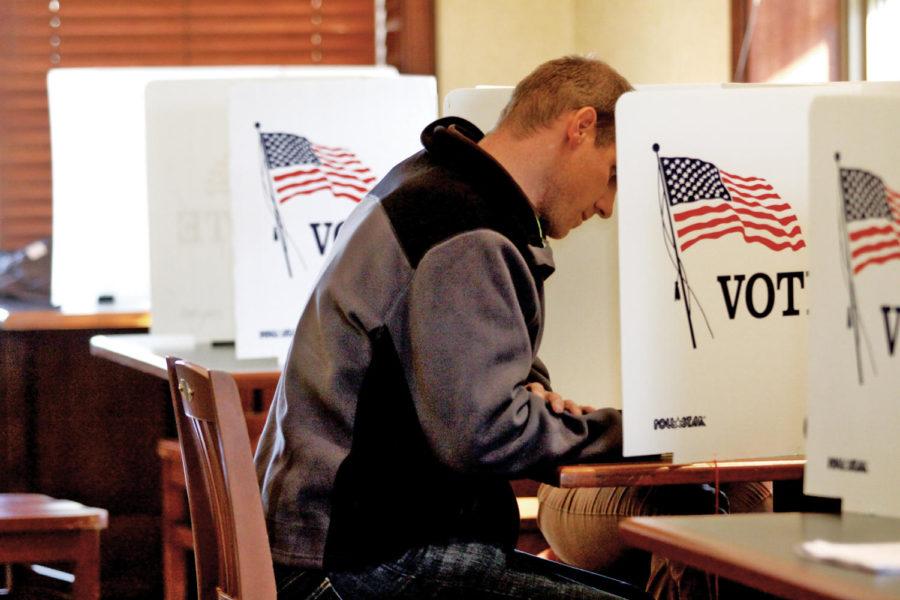Grissom: Focus on the issues, not party identity
Photo: Yue Wu/Iowa State Daily
Jay Grey votes at Hawthorn on Tuesday. Grey thinks it’s a pivotal election in determining future of legislation.
January 13, 2012
On my 18th birthday, my father took
me to the Department of Motor Vehicles to renew my driver’s
license. Amongst the privileges granted to me on the day I became a
legal adult, including the elimination of my curfew, was one
promised to me in the 15th Amendment to the Constitution: the right
to vote.
When registering to vote, people
more often than not will glance over the rarely-heard-of third
parties, such as the Constitution, Green and Libertarian parties,
and make a check mark in front of either the Republican or
Democratic Party. The choice is usually an easy one based on a
person’s upbringing, whether they chose to join their parents’
party or rebel against it. Regardless, it seems as though once the
box is checked and the form is signed, a person’s voting future is
sealed, and they will vote for their decided party in every
election they ever chose to participate in. There is no need to
really examine a politician’s stances because
you must automatically fly on the right or left wing on all
issues at hand.
This could be ideal, making
candidate selection very easy, but I believe it’s safe to say that
not everybody sees every issue as equal. I, for example, prioritize
energy, environmental issues, education and the war in Iraq. But
someone else may not see conservation as an important issue but be
very devoted to whether or not abortion is legal or illegal. And
it’s likely that I and the person in my hypothetical example will
not find all of our ideals in one party. Some of our issues may
lean right and some may lean left. In this case, which party should
we side with? The answer is neither.
Unwavering devotion to either
political party has caused conflict in our country since Whig was
considered a major party. We celebrate when our party dominates the
House and get bitter when they do not. We insult the opposing party
and blame all our nation’s problems on its actions. The opposite
party is always ignorant, stupid and incompetent. And, because of
all this hype, elections have become more about what political
party we are affiliated with rather than what is really important:
The changes we want to see happen with a new man or woman in
office.
Ghandi said to “be the change you
wish to see in the world.” Following his advice, we may not be able
to single-handedly end the war in Iraq or legalize gay marriage,
but we can choose a leader who wants to see the same change we
do.
Instead of absentmindedly voting for
a person who belongs to a particular party, we should examine our
own beliefs and ask ourselves what we want to see happen, then pick
the candidate who will use his or her power to see this change
through, regardless of his or her political party. Above the
battles between the Democrats and Republicans is the common goal to
make a better America, so we as its citizens should use the issues
in need of address, not political affiliation, when exercising our
right to vote.

















